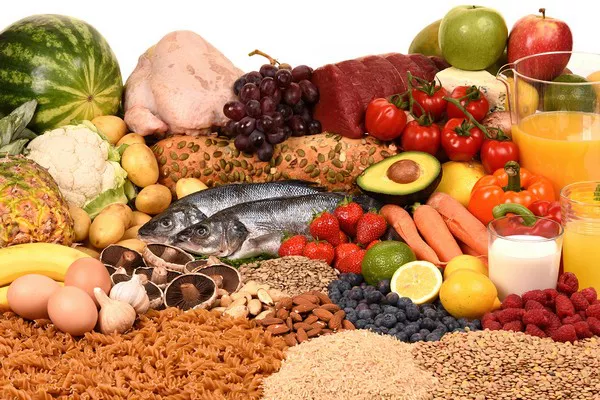A large-scale study in the UK has found that vegetarians may have a slightly higher risk of hypothyroidism, especially those with low iodine intake. However, the study revealed no significant increased risk for vegans, sparking questions about the role of iodine and BMI in explaining diet-related thyroid outcomes.
The research, published in BMC Medicine, investigated the risk of hypothyroidism among different dietary groups, including meat eaters, fish eaters, vegetarians, and vegans. The results showed that the risk of hypothyroidism in vegetarians was only significantly higher when BMI (Body Mass Index) was taken into account. Specifically, for those who identified as pescatarians (those who eat fish but not other meats), the risk of developing hypothyroidism was notably higher, although the risk for vegans and vegetarians did not show significant increases in the overall analysis.
Background of the Study
Plant-based diets have grown in popularity worldwide, praised for their health benefits and environmental sustainability. They have been shown to reduce the risk of various chronic diseases, including heart disease, metabolic disorders, and some cancers. However, these diets can sometimes lack essential nutrients such as zinc, iron, selenium, vitamin B12, and iodine, all of which are important for regulating bodily functions, including hormone production.
Iodine plays a critical role in the biosynthesis of thyroid hormones. A deficiency in iodine can lead to thyroid enlargement (goiter), thyroid nodules, and hypothyroidism. The World Health Organization (WHO) recommends a daily intake of 150 micrograms of iodine, with 200 micrograms recommended for pregnant and breastfeeding women. This has raised concerns about iodine deficiency, especially as plant-based diets become more widespread. In addition to inadequate iodine intake, certain cruciferous vegetables (like broccoli and kale) and soy-based products can reduce the bioavailability of iodine, further increasing the risk of thyroid complications.
The growing trend of plant-based diets has led to questions about the potential risk of iodine deficiency and related thyroid complications. The study aimed to assess the risk of hypothyroidism in people following different diets, such as high meat eaters, low meat eaters, poultry eaters, pescatarians, vegetarians, and vegans.
Study Design and Methodology
The study analyzed data from the UK Biobank, a large prospective cohort study involving over 466,000 participants aged between 40 and 69. Participants were categorized based on their self-reported food intake into six dietary groups: high meat eaters, low meat eaters, poultry eaters, pescatarians, vegetarians, and vegans. Statistical analyses were conducted to assess the risk of hypothyroidism in each dietary group.
Over a period of 12 years, the study tracked 10,831 new cases of potential iodine-related hypothyroidism. Among the dietary groups, the incidence of hypothyroidism was as follows: 2% for high meat eaters, 2% for low meat eaters, 3% for poultry eaters, 2% for pescatarians, 3% for vegetarians, and 3% for vegans.
Analysis of iodine intake data from 207,011 participants showed that 92% of vegans, 44% of vegetarians, and 33% of poultry eaters did not meet the recommended daily iodine intake of 150 µg.
Results of the Study
The study found that people who developed hypothyroidism were more likely to be female, have a higher BMI, and have lower incomes. Importantly, BMI had a significant effect on the relationship between diet and hypothyroidism risk. When BMI was adjusted for, vegetarians had a slightly higher risk of hypothyroidism. However, no significant association was found for vegans or pescatarians. For baseline hypothyroidism prevalence, pescatarians showed a notable increase in risk, even after adjusting for BMI.
This adjustment revealed that only after accounting for BMI did the vegetarian diet show a statistically significant positive association with hypothyroidism risk. The study also found that pescatarians were at a higher risk for hypothyroidism, a result that was significant after adjusting for BMI. However, the sample size of vegans was relatively small (n=397), which may have limited the ability to detect differences in their risk.
Importance of BMI in the Findings
BMI strongly influenced the study results, leading researchers to question whether BMI served as a confounder or collider in mediating the relationship between diet and hypothyroidism risk. While a confounder influences both the exposure and outcome, a collider is influenced by both. Existing evidence suggests that BMI may confound the relationship between diet and hypothyroidism. BMI, being influenced by both diet and thyroid function, may distort the true relationship between diet and thyroid outcomes.
Given that participants following plant-based diets generally have lower calorie intake, it is more likely that diet affects BMI rather than the other way around. This suggests that BMI may act as a collider, influencing the effects of diet on thyroid function. Since BMI is also affected by hypothyroidism through metabolic changes, adjusting for BMI may introduce bias into the findings.
Conclusion and Implications
The study highlights that while vegetarians may face a slightly higher risk of hypothyroidism, the effect is mainly driven by BMI rather than diet itself. Vegans and pescatarians did not show significant increased risks of hypothyroidism. However, the study also emphasizes the potential role of iodine as a critical nutrient for vegetarians and suggests that iodine supplementation may be beneficial to prevent thyroid-related disorders.
As an observational study, the research does not establish causality. The apparent association between diet and hypothyroidism may be due to underlying differences in BMI or other unmeasured factors. Future research should focus on examining iodine status and thyroid function before the onset of hypothyroidism to better understand the relationship between diet, iodine intake, and thyroid health.
Related Topics



































